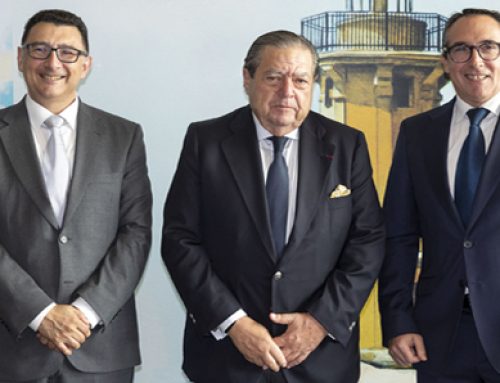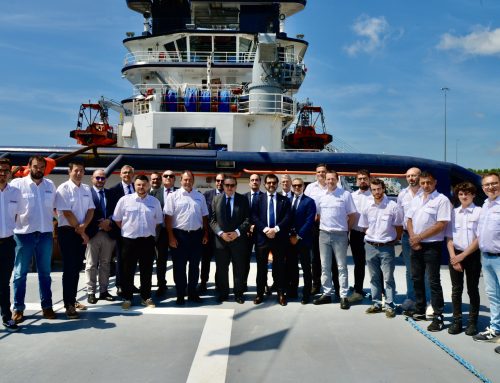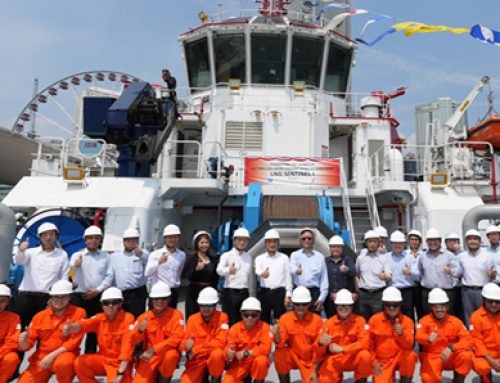Women dominate the awards for the first time, with four winners: Alicia Asín, Susana Marcos, Anna Travaset and Carmen Herrero, alongside two men: Fernando Martín and Josep Dalmau
The sixteen Nobel laureates on the jury urge public and private authorities to promote “continued support for investment in education as an essential tool for development, cohesion and social inclusión”
The president of the Valencia Foundation for Advanced Studies Vicente Boluda highlighted during the announcement of the Rey Jaime I Award winners that these awards demonstrate “the Valencian Community’s support, commitment to and contribution towards promoting actions that benefit Spain as a whole”. Boluda also acknowledged the original vision of founder professor Santiago Grisolía, who received a warm round of applause from attendees.
Women were in the majority for the first time in the history of the Rey Jaime I Awards, after the jury, including sixteen Nobel laureates, announced yesterday the winners in six categories (Basic Research, Economics, Clinical Medicine, Environmental Protection, New Technology and Entrepreneurship), each receiving 100,000 euros. Only eight women have received awards in previous years.
Winners of this 29th edition, which received over 220 applications from all over Spain, were Fernando Martín García in Basic Research; Alicia Asín Pérez in the category of Entrepreneurship; Susana Marcos Celestino in New Technology; Anna María Travaset Vilaginés in the field of Environmental Protection; Josep Dalmau Obrador in Clinical Medicine and Carmen Herrero Blanco in Economics.
The winners were announced at a formal event in the Saló de Corts in the Palau de la Generalitat (Regional government), chaired by the president of the Valencian government Ximo Puig, accompanied by the founding president, Santiago Grisolía, the chief executive, Javier Quesada and the vice-president of the Rey Jaime I Awards Foundation, Vicente Boluda.
President Puig spoke about the danger of denialism, as well as human influence on climate change. The president defended the importance of science to human progress, calling for a European pact on science and championing the Generalitat’s measures to attract and retain researchers.
Winners
Fernando Martín García, prize-winner in Basic Research, is a 55 year old PhD in Chemical Sciences, and professor at the Universidad Autónoma de Madrid. He is one of the pioneers in setting out the theoretical foundations of Attophysics, a new scientific discipline that observes and controls electronic movement in atoms and molecules in real time.
Alicia Asín Pérez, awarded in the Entrepreneurship category, is a young computer engineer and founder of Libelium, a company created in 2006 that designs and manufactures wireless sensors for smart cities. She has focused her career on how the Internet of things (IoT) can change the world.
Susana Marcos Celestino is the winner in New Technology. A 46 year old research professor at the CSIC’s Optics Centre in Madrid, her work has generated innovation and impact in the ophthalmology industry, as well as an improvement in the diagnosis and treatment of eye problems.
Anna María Travaset Vilaginés, 55 years old, awarded in the field of Environmental Protection, has a PhD in Biological Sciences, and is currently Research Professor at Imedea (CSIC-UIB) in Mallorca.
Josep Dalmau Obrador, Clinical Medicine award winner, is a 63 year old PhD in Medicine currently working at Hospital Clínic, in the August Pi i Sunyer Biomedical Research Institute.
And finally, Carmen Herrero Blanco wins the award in Economics. She has a degree in Mathematics and has been professor of Economic Analysis since 1986. She has published more than 60 articles in JCRs and seven monographs, also supervising 15 doctoral theses.
Nobel Laureate Declaration
As is traditional in the Rey Jaime I Awards ceremony, before the winners were announced there was a declaration speech, which took place in the throne room of the former Convent of Santo Domingo cloisters, headquarters of the Military General Captaincy.
In the declaration, sixteen Nobel Prize winners urged public and private authorities to encourage “continued support for investment in education, especially in times of social and economic hardship.” In the statement, which was read by the executive chairman of the awards, Javier Quesada, the Nobel laureates emphasised that access to education, “as well as being a fundamental human right, is an essential tool for development, cohesion, and inclusion”.
As president of the Foundation for Advanced Studies, Vicente Boluda stressed during the event that “working in support of research, science and performance will definitely make for a better world with more opportunities for everyone”.



